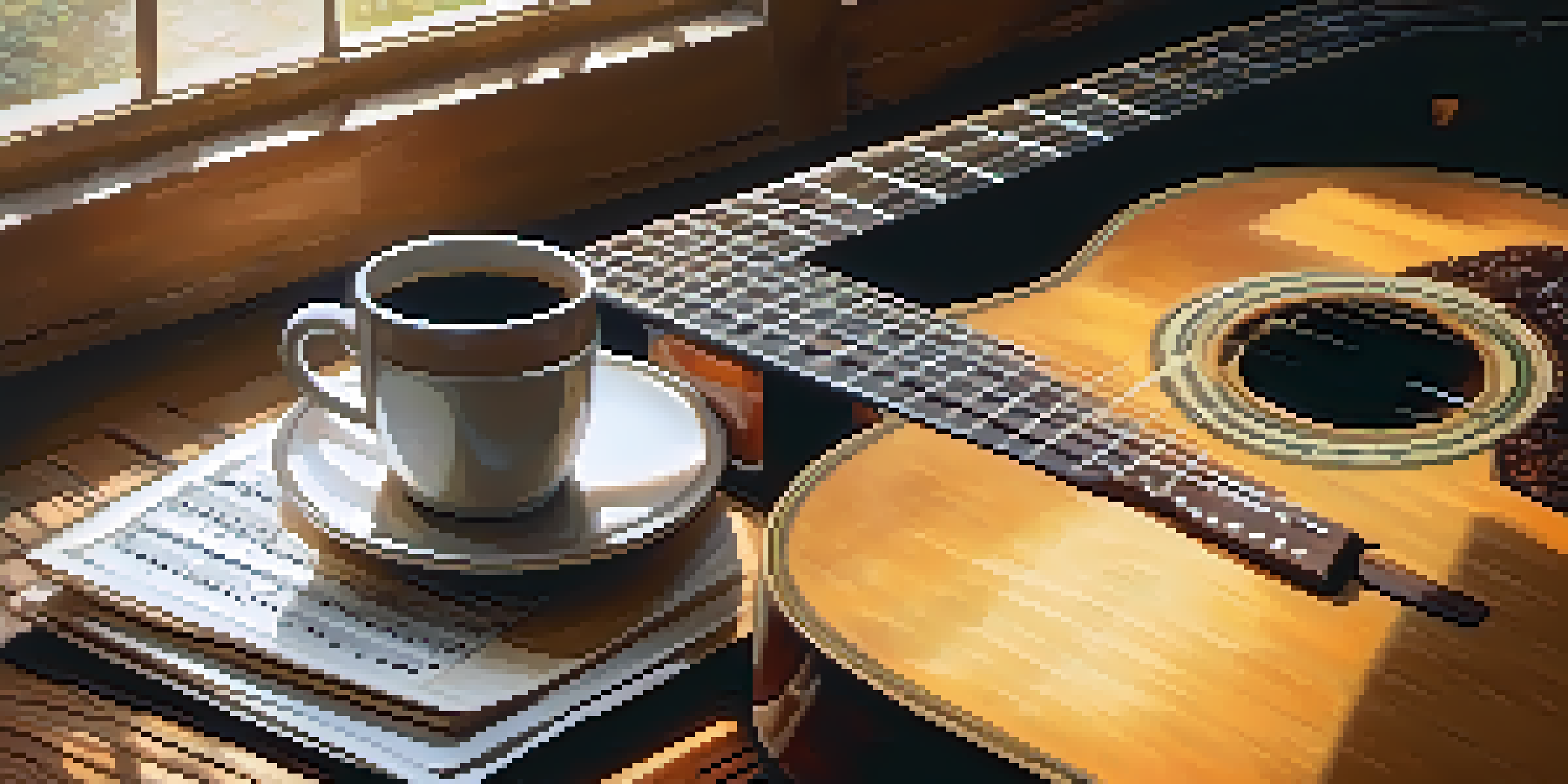7 Guitar Myths That Every Beginner Should Stop Believing

Myth 1: You Must Start with an Expensive Guitar
Many beginners believe that to play well, you need the most expensive gear. While a quality instrument can enhance your sound, it's not a prerequisite for starting out. A decent, affordable guitar can serve you just as well during your learning phase.
It's not about the guitar you play, but how you play it.
Think of it this way: even a seasoned chef can whip up a gourmet meal with basic tools. Similarly, your skills will improve with practice, not just premium equipment. Focus on honing your technique rather than worrying about the price tag.
Once you become more experienced and determine your personal style, investing in a higher-end guitar may make sense. But remember, it's your dedication and practice that will truly shape you into a great player.
Myth 2: You Have to Learn Music Theory
Many beginners feel overwhelmed by the idea of music theory, believing it's essential to play guitar. While understanding theory can enhance your playing, it’s not a strict requirement for enjoyment. Many successful guitarists started playing by ear or imitating their favorite songs.

Imagine learning to ride a bike; you don't need to know the physics behind balance to enjoy the ride. Similarly, you can start strumming your favorite tunes without diving deep into music theory. This foundational phase can keep your passion alive.
Start with Any Affordable Guitar
A decent, affordable guitar is sufficient for beginners to develop their skills without needing expensive gear.
Once you're comfortable, exploring music theory can provide valuable insights and improve your skills. But don’t let the fear of theory hold you back from picking up the guitar and playing!
Myth 3: Finger Pain Means You’re Doing It Wrong
Many beginners experience finger pain when they start playing guitar, leading them to think they're not doing it right. In reality, some discomfort is normal as your fingers adjust to pressing down strings. It's a rite of passage that nearly every guitarist encounters.
The best time to plant a tree was twenty years ago. The second best time is now.
Consider it like building muscle; the soreness means you’re strengthening and conditioning your fingers. Over time, you'll develop calluses that make playing much more comfortable. Embrace the process and know that it will get easier!
If the pain becomes sharp or persistent, it’s essential to check your technique and ensure your guitar is properly set up. Remember, a little discomfort is part of the journey, but it shouldn't hinder your enjoyment.
Myth 4: You Must Practice for Hours Daily
A common belief is that you need to dedicate hours every day to practice guitar in order to improve. While consistent practice is crucial, it’s more about quality than quantity. Even short, focused practice sessions can lead to significant progress.
Think of it as watering a plant; a little bit every day can produce great results. Instead of aiming for long sessions, focus on specific skills or songs during your practice time. You'll find that regular, shorter practices can be more effective.
You Can Learn Without Music Theory
While music theory can enhance your playing, many successful guitarists enjoy making music without it.
Set realistic goals for yourself, and don’t be discouraged if you can’t squeeze in a long practice every day. Consistency and a positive mindset will take you far in your musical journey.
Myth 5: You Can’t Play Without a Pick
Many beginners assume that using a pick is the only way to play guitar effectively. However, fingerstyle playing is a valid and beautiful technique that many guitarists employ. You can produce a rich sound using just your fingers!
Imagine a painter choosing between a brush and their hands; both can create stunning artwork. Similarly, using your fingers allows for a different tonal quality and a more intimate connection to the instrument. It’s all about finding what feels right for you.
Experiment with both picks and fingers to discover which technique resonates more with your style. The versatility of the guitar means you can adapt your approach as you grow.
Myth 6: You Need to Learn Every Chord
Many beginners feel pressured to learn every chord before they can start playing songs. In reality, a handful of chords can get you started on countless songs. Familiarizing yourself with a few basic chords allows for immediate gratification and keeps your motivation high.
Think of it as learning to cook; you don’t need to master every recipe to enjoy a good meal. Start with simple chords like G, C, and D, and you'll find that many popular songs use these same progressions. This approach can make learning fun and engaging.
Practice Quality Over Quantity
Consistent, focused practice sessions are more effective than lengthy daily practices in improving your guitar skills.
Once you’ve built confidence with basic chords, you can gradually expand your repertoire. Remember, it’s about enjoying the music, not overwhelming yourself with unnecessary information.
Myth 7: You Must Be Young to Learn Guitar
There's a misconception that you must start learning guitar at a young age to be successful. The truth is, people of all ages can learn and excel at playing. Many adult learners find immense joy and satisfaction in picking up the guitar later in life.
Consider it like starting a new hobby; it’s never too late to pursue something you’re passionate about. Many famous musicians started their journeys in their teens, twenties, or even later. Your age doesn’t define your ability to learn and create music.

So, if you’re an adult considering guitar, go for it! It’s a fulfilling endeavor that can bring joy and a sense of achievement, regardless of when you start.